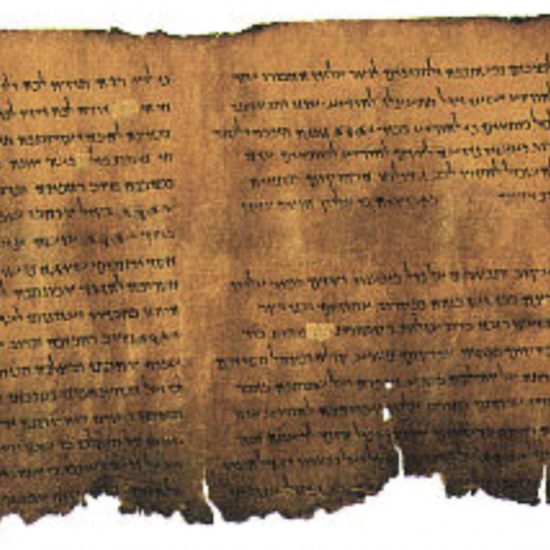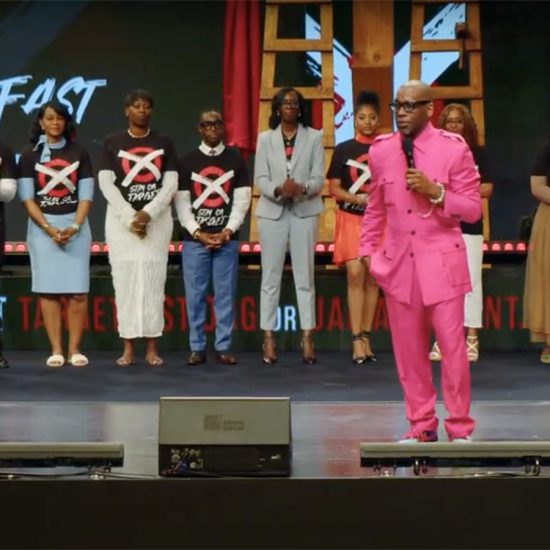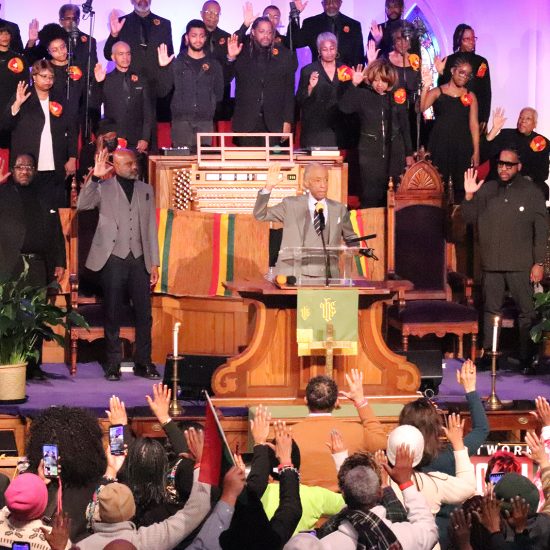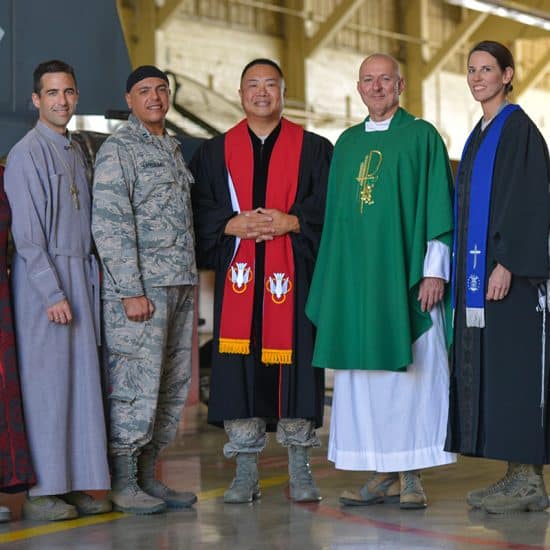BOILING SPRINGS, N.C. (ABP) – A predominantly white Baptist college in rural North Carolina might seem an unlikely place to find an urban African-American pastor from California known for an agenda of prophetic justice, but Gardner-Webb University just said goodbye to J. Alfred Smith, pastor emeritus of Allen Temple Baptist Church in Oakland, Calif., who served as the school’s first scholar-in-residence this spring.
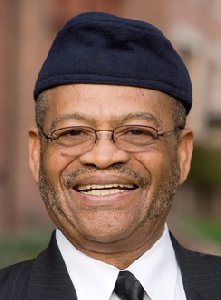
|
Packing to return to California following his longest absence ever from family, Smith, 80, spoke well of his experience with the 4,000-student university affiliated with the Baptist State Convention of North Carolina.
Smith, who early in his ministry baptized revolutionary Black Panthers, said Gardner-Webb “is not a weather vane that points in the direction that the winds of culture are blowing,” but rather “interested in communicating the gospel to a world of rich diversity.”
Smith, professor of preaching and church ministries at American Baptist Seminary of the West, invested 40 years of ministry in Oakland. He came to Allen Temple shortly after the founding of the Black Panther Party – an African-American revolutionary leftist organization — behind the leadership of Bobby Seale and Huey P. Newton .
A young pastor anxious to take the church outside of walls, Smith worked among the Black Panthers, helping them with their neighborhood feeding programs and transportation services carrying inmates’ families to Soledad Prison for visits.
Allen Temple’s family life center was built on the site of the Black Panthers’ headquarters. Smith baptized Newton and eulogized him at his funeral.
“I didn’t believe the local church was just to meet, eat and greet,” Smith said. “We were to be salt in the society and to be leaven in society.”
Bobby Seale’s sister is now a deacon at Allen Temple and works as the church’s radio announcer.
Allen Temple ministries include an area for community care through AIDS ministry, health and social services and girls’ rite of passage, among others. The church staff includes a rare — if not unique — minister for prophetic justice.
The church’s prophetic-justice ministry deals directly with human rights, “greening the ghetto,” and with community development and transportation. Its objective is “To work for peace on earth and with the earth; to work for justice in the social, economic and environmental dimensions of community; and to speak truth to power on behalf of the powerless.”
Smith said he came to Gardner-Webb “with an open mind” because of a long standing friendship with current New Testament professor Larry George, a man Smith has known since George was a student at San Francisco Theological Seminary.
“He is an ecumenical thinker and scholar and not a parochial and provincial person,” Smith remarked. “I came exclusively on that basis.”
Smith said what he discovered at Gardner-Webb was “the best kept secret in the state” and an institution the rest of the country should know as well.
Smith describes his teaching method as “kindling the flame” rather than simply “filling a vessel” with information. Although he is from an entirely different experience and holds a gospel perspective that finds little voice in a “suburban Christian culture,” he found Gardner-Webb students receptive.
“They listened to me, whether they agreed with me or not,” he said.
Smith shared some of his perspective in a telephone interview May 9.
“We live in a culture where people don’t recognize the poor and they blame the poor for the problems of the nation,” Smith said. “Even our best politicians never talk about the poor. They just talk about helping middle class America.”
Smith said America has “too much a culture of accumulation,” while Jesus “was born poor, worked with the poor and died poor.”
Contrasting “some very powerful prosperity gospel preachers” who arose in the black church following the death of Martin Luther King Jr. by equating the gospel with ”a lavish kind of capitalism,” Smith invoked King’s admonition that the church has “a high blood count of creed and an anemia of deed.”
Smith said Christians should see themselves as “resident aliens” in America and concentrate on being the church rather than in trying to reshape the culture in which they live. When Christ and culture mix historically, he said, the result has been “a new form of oppression” similar to that seen in Islamic nations where government actions are taken “in the name of Allah.”
While advocating for democracy, Smith said the United States is “the world’s largest supplier of war implements, of tools for killing.”
“We have a schizophrenic personality, and America needs to be careful of not becoming the thing that she despises,” he said.
He described the church as a “fractured fellowship” with “too much internal squabbling over theological issues.” Some of the problems could be solved if the church were to be evangelized, he said. Instead, there is too much emphasis on membership and too little on discipleship.
“We don’t want to die to self. We don’t want to die to traditions. We don’t want to die to power,” he said. “We want to serve God and mammon.”
Commenting on the recent death of terrorist Osama bin Laden, Smith said it was necessary but the U.S. “cannot say justice was done, because God is the dispenser of justice.”
“Even our highest motivations are tainted with the sin of self interest,” he said. Because God loved the world — and not just the church — Smith said bin Laden “had the image of God in him.”
“We had to kill him,” Smith said, but bin Laden’s death should be cause for “a sense of lamentation” rather than rejoicing. He described the killing of bin Laden as a hard choice in a world of gray.
-30-
Norman Jameson is reporting and coordinating special projects for ABP on an interim basis. He is former editor of the North Carolina Biblical Recorder.

